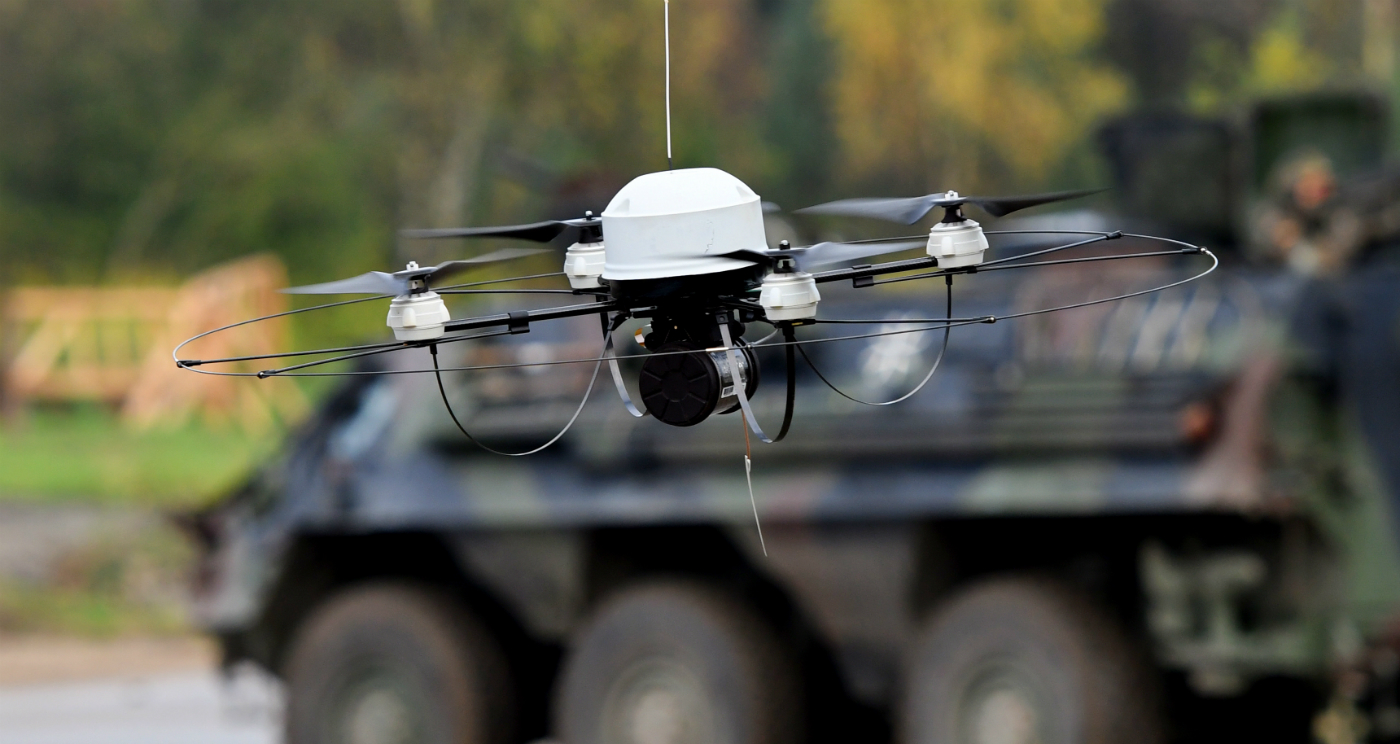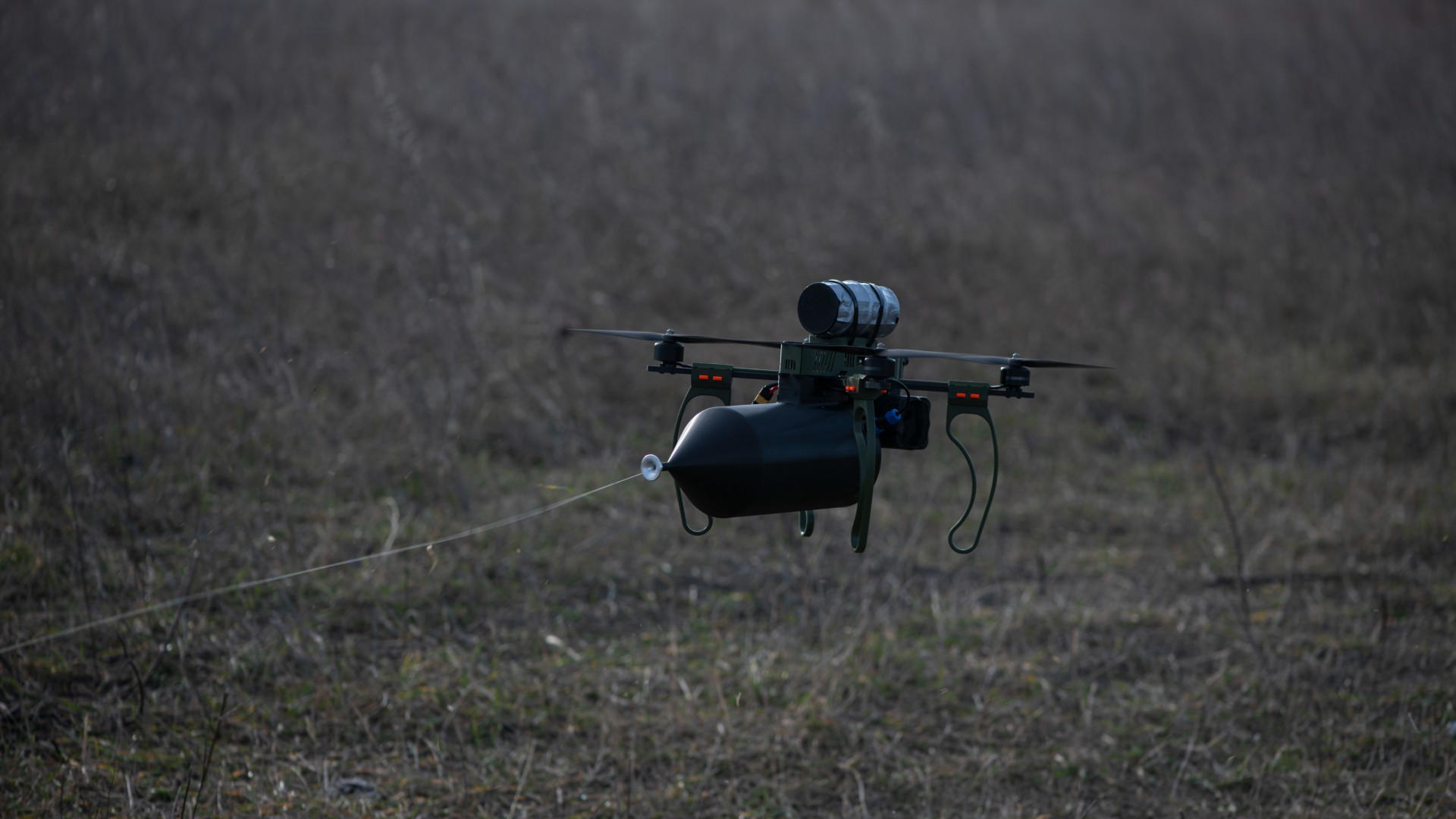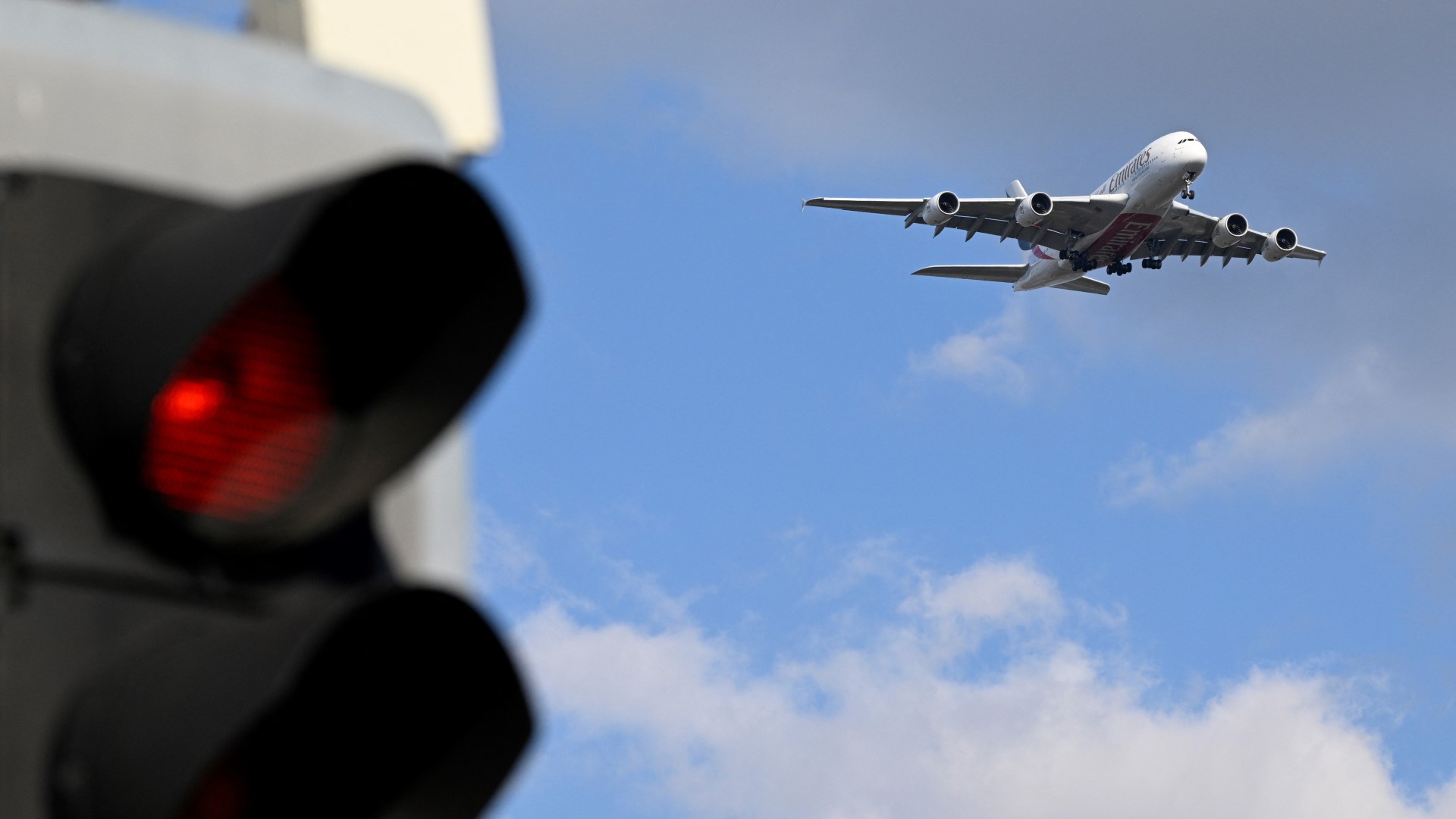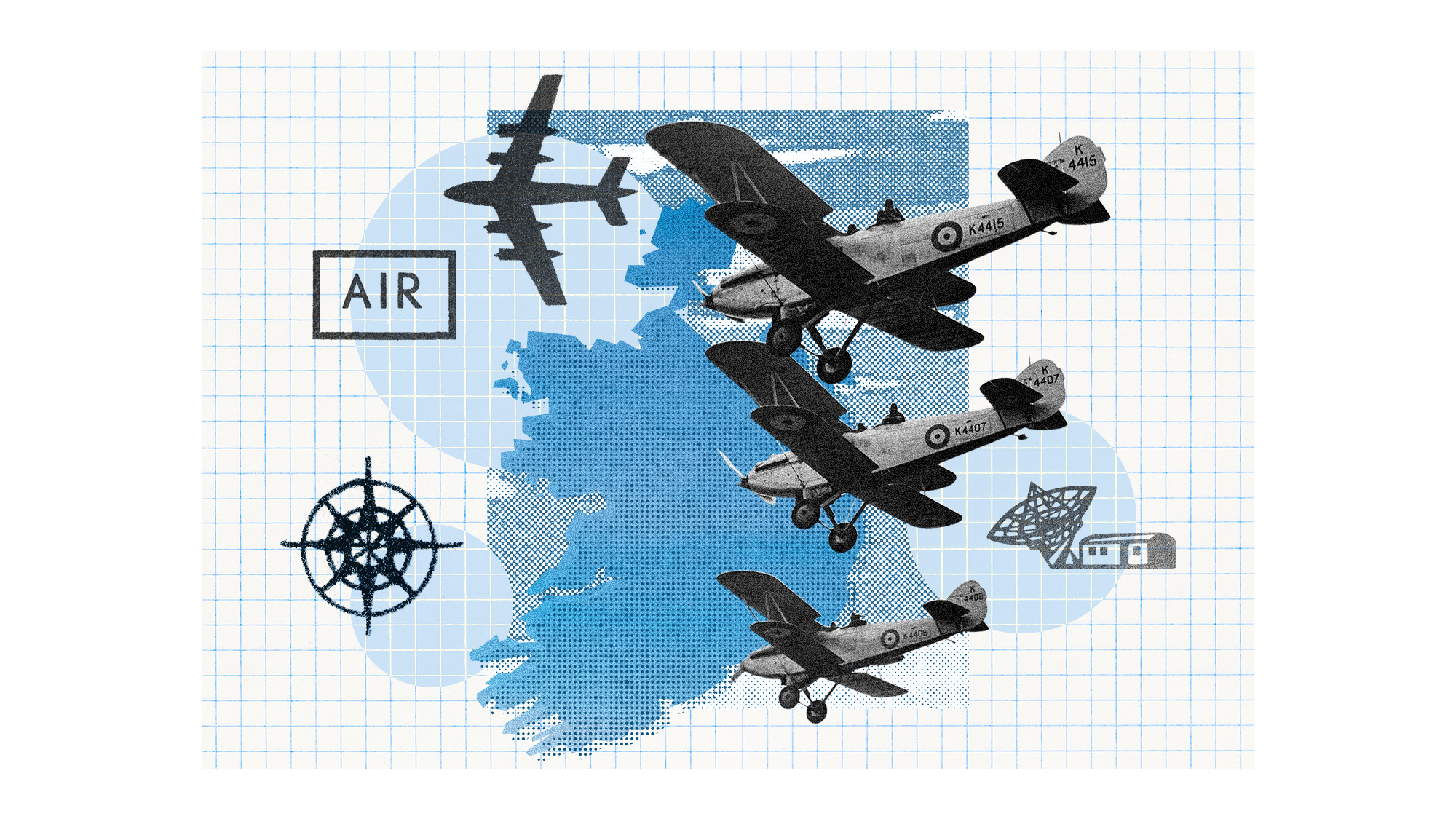Britain’s biggest security threats laid bare
In Depth: terrorism, cyber-attacks and killer robots are looming problems

A free daily email with the biggest news stories of the day – and the best features from TheWeek.com
You are now subscribed
Your newsletter sign-up was successful
The Munich Security Conference opened today with a warning that international order is being weakened by tension between Washington and Pyongyang, strained Nato-Russia ties and the possible unravelling of landmark nonproliferation treaties.
The world has moved much closer to the brink of a “significant conflict” over the past year, conference chairman Wolfgang Ischinger said ahead of the meeting, which brings together the world’s defence experts and policymakers.
Theresa May is to address the conference on Saturday with a pledge to keep Britain’s European Arrest Warrant and Europol links, The Sunday Times says. The Prime Minister is also expected to reassure EU leaders about the UK’s strategic direction post-Brexit.
The Week
Escape your echo chamber. Get the facts behind the news, plus analysis from multiple perspectives.

Sign up for The Week's Free Newsletters
From our morning news briefing to a weekly Good News Newsletter, get the best of The Week delivered directly to your inbox.
From our morning news briefing to a weekly Good News Newsletter, get the best of The Week delivered directly to your inbox.
May’s message will be that Britain wants a “close security partnership with Europe, whatever else happens in the Brexit talks,” says Politico’s Jack Blanchard.
But what are Britain’s biggest security threats? The Week examines six of the challenges facing the UK.
Brexit
Former MI6 head Sir John Sawers says Britain must work out whether to align itself with Europe or the US post-Brexit, adding that “consciously uncoupling” from the EU will undoubtedly weaken Britain on the global stage.
A free daily email with the biggest news stories of the day – and the best features from TheWeek.com
“I think the country’s become less confident. And less outward-looking itself. And now of course we are saddled with the Brexit negotiation,” he said in a podcast interview with Prospect magazine.
While countries outside the EU cannot take part in the region’s foreign policy decision-making, the Financial Times notes that the EU has said it wants a mechanism for “specific dialogue” and “consultation” with the UK – in part because Britain has a permanent seat on the UN Security Council.
The UK “will have to beef up its diplomacy in Europe after steep cuts to the Foreign Office,” adds the paper.
One European diplomat told the FT: “The fact that you are not in the room means you have to spend a lot longer working out where the EU is going next. I have seen the size of the American delegation and the Norwegian delegation.”
MI5 director General Andrew Parker, addressing an audience in London last year, said that the intelligence service was still countering threats from terrorism in Northern Ireland.
While the Provisional Irish Republican Army and the main loyalist groups have ceased their terrorist campaigns, some dissident republican groups continue to carry out terrorist attacks, seeking to destabilise Northern Ireland through the tactical use of violence, targeting members of the Police Service of Northern Ireland and causing disruption and economic damage, according to MI5’s website.
Northern Ireland’s top police officer warns that border posts and security installations erected in the case of a “hard Brexit” would be seen as “fair game” for attack by violent dissident republicans, The Guardian reports.
George Hamilton, chief constable of the Police Service of Northern Ireland, says a “fortified frontier” would need to be policed around the clock and would put his officers’ lives in danger.
International terrorism
British Army chief General Sir Nicholas Carter says the threat from international terrorism has never been greater.
It has “diversified and is more dispersed, and we see the phenomenon that Daesh represents emerging in other parts of the world,” Carter said in a speech at the Royal United Services Institute.
The terrorism threat will continue to grow, resulting in a “complicated tapestry of factors with extremist groups exploiting the chaos to seize territory and carve out an even larger foothold for themselves whence to launch attacks, including recruiting and inspiring our own citizens to acts of terror,” he added.
The long-term solution, Carter says, is to fix the causes of terrorism, which are “invariably a lack of education, a lack of opportunity and a growing feeling of exclusion and isolation often... coupled with a lack of opportunity and therefore a sense of impotence”.
National debt
Dan Coats, US director of national intelligence, told the Senate Intelligence Committee this week that America faces global and cyber threats from North Korea, Russia, Iran and China, in addition to an internal US security problem: the national debt.
“I would urge all of us to recognise the need to address this challenge and to take action as soon as possible before a fiscal crisis occurs that truly undermines our ability to ensure our national security,” said Coats, according to Business Insider.
Britain may want to take note. UK debt was nearly £1.8 trillion at the end of July 2017, 87.5% of gross domestic product.
Cyber attacks
The head of the UK’s National Cyber Security Centre says a major cyber-attack on the UK is a certainty.
Ciaran Martin told The Guardian he anticipated such an attack in the next two years: “I think it is a matter of when, not if, and we will be fortunate to come to the end of the decade without having to trigger a category one attack.”
Earlier this week the chancellor, Philip Hammond, told the The Sunday Telegraph that the centre had blocked 34,550 potential attacks on government departments and members of the public in the past six months – about 200 cases a day. The US and the UK also this week blamed Russia for a massive cyber attack known as NotPetya that wreaked havoc around the globe.
Killer robots
Killer robots may sound like a more existential threat but they’re one that’s no less real. Politico’s Janosch Delcker has reported on the imminent arrival of fully autonomous weapons, otherwise known as killer robots.
“Nothing illustrates the revolutionary nature of fully autonomous weapons better than the recent development of ‘swarming drones’ – small, unmanned aircraft operating in groups that could soon outperform existing military technology,” he writes.
“The size of swarms is limited now to hundreds of aircraft – but ultra-cheap, 3D-printed drones are being developed that, researchers believe, could be deployed as swarms of millions of tiny, insect-like craft within the next five to 10 years.”
-
 Why is the Trump administration talking about ‘Western civilization’?
Why is the Trump administration talking about ‘Western civilization’?Talking Points Rubio says Europe, US bonded by religion and ancestry
-
 Quentin Deranque: a student’s death energizes the French far right
Quentin Deranque: a student’s death energizes the French far rightIN THE SPOTLIGHT Reactions to the violent killing of an ultraconservative activist offer a glimpse at the culture wars roiling France ahead of next year’s elections
-
 Secured vs. unsecured loans: how do they differ and which is better?
Secured vs. unsecured loans: how do they differ and which is better?the explainer They are distinguished by the level of risk and the inclusion of collateral
-
 Did Trump just end the US-Europe alliance?
Did Trump just end the US-Europe alliance?Today's Big Question New US national security policy drops ‘grenade’ on Europe and should serve as ‘the mother of all wake-up calls’
-
 How drone warfare works
How drone warfare worksThe Explainer From Ukraine to Iran, it has become clear that unmanned aircraft are rapidly revolutionising modern warfare
-
 Is Europe's defence too reliant on the US?
Is Europe's defence too reliant on the US?Today's Big Question As the UK and EU plan to 're-arm', how easy will it be to disentangle from US equipment and support?
-
 China's vast intelligence network
China's vast intelligence networkThe Explainer Cyber capabilities and old-fashioned human intelligence operate in 'fundamentally different way from those in the West—in nature, scope, and scale'
-
 Incendiary device plot: Russia's 'rehearsals' for attacks on transatlantic flights
Incendiary device plot: Russia's 'rehearsals' for attacks on transatlantic flightsThe Explainer Security officials warn of widespread Moscow-backed 'sabotage campaign' in retaliation for continued Western support for Ukraine
-
 Secret plan for UK to protect Irish skies
Secret plan for UK to protect Irish skiesUnder The Radar Relations between Dublin and London have historically been strained but covert co-operation has endured for decades
-
 How likely is an accidental nuclear incident?
How likely is an accidental nuclear incident?The Explainer Artificial intelligence, secret enemy tests or false alarms could trigger inadvertent launch or detonation
-
 A history of Hezbollah's tensions with Israel
A history of Hezbollah's tensions with IsraelThe Explainer Iran-backed group's military capabilities make it a much 'more dangerous opponent to Israel' than Hamas